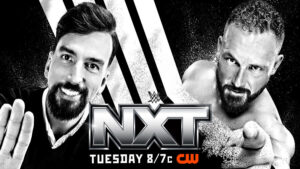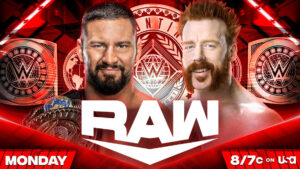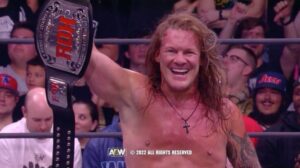To pro wrestling fans who watched in the 1980s, one of it’s biggest TV moments had nothing to do with the wrestlers on the show. It happened on July 14, 1984, when World Championship Wrestling on TBS at 6:05 pm opened up and there, instead of Gordon Solie or any of the regular Georgia Championship Wrestling personnel, stood the WWF’s lead announcer and figurehead, Vince McMahon. Vince McMahon announced that he was “proud” to bring wrestling “entertainment” to WTBS. It proved to be one of McMahon’s few blunders as he brought WWF to global dominance by the decade’s end and the debut would forever be known as Black Saturday.
Black Saturday: Vince McMahon FIres His First Shot at Taking Over
World Championship Wrestling had been a Southern staple of pro wrestling for decades. It had been Georgia Championship Wrestling’s flagship program, first airing on WXIA (then WQXI-TV) in 1971. In 1972, Ted Turner purchased the program from WQXI and moved it to his own TBS station. With GCW being one of the National Wrestling Alliance (NWA)‘s top promotions in the 1970s, the Saturday night time slot of 6:05 to 8:05 become one of the station’s most-watched shows and made NWA stars into household names in many parts of the country. In 1982, promoter Jim Barnett bought part ownership in GCW and rebranded the TV show to World Championship Wrestling, named after the Australian promotion Barnett had run previously.

In 1984, Vince McMahon was in full on invasion mode and had begun to acquire territories, both geographically for putting on shows and key TV stations in prime targets. In Canada, he acquired two of their powerhouses – Toronto’s Maple Leaf Wrestling and Calgary’s Stampede Wrestling – and in the US, he bought out GCW. GCW owners Jerry Brisco and Jim Barnett would soon find work with WWF after that, but in the acquisition was the deed for the World Championship Wrestling timeslot on TBS.
Ted Turner was weary of the new tenants, but the sinking ratings didn’t do WWF any favors. The staunch NWA fanbase had no interest in these cartoon characters from New York taking over their television, that had previously given them Ric Flair, Dusty Rhodes, and The Road Warriors. And to rub salt in the wounds, McMahon would regularly show footage of WWF guys getting big wins over guys who were big deals in NWA territories, and had done enhancement work for WWF. Almost as if to show that his midcarders were better than their main eventers.
To counter this, Turner decided to strike out at McMahon’s biggest weakness – his ego. He gave Bill Watts‘ Mid South a time slot on Sunday, and Ole Anderson‘s Championship Wrestling From Georgia (the spiritual successor to GCW) a Saturday morning timeslot as well, featuring GCW’s Gordon Solie behind the mic. Both shows beat WWF’s Saturday night ratings, and McMahon was furious. Vince had been under the assumption that he would be the exclusive wrestling company on TBS and when Turner wouldn’t budge, McMahon had no option but admit defeat. TBS was clearly a wrasslin’ network, and he couldn’t afford to be embarrassed in the ratings.

Vince McMahon sold the timeslot rights to Jim Crockett Promotions (JCP), who ran Mid Atlantic Championship Wrestling (and the main home of Ric Flair) for $1 million. The NWA was back on TBS programming. JCP would begin their own acquisition, picking up territories like Mid South and Championship Wrestling From Florida, but despite making ground, they simply didn’t have the resources that McMahon was acquiring since the success of WWF’s first WrestleMania in 1985. In 1988, JCP sold their company to TBS’ owner himself, Ted Turner. In an effort to rebrand, he renamed the company after his flagship show, World Championship Wrestling. And thus, a billionaire from the South entered into a competition with WWF that would last two decades, boiling over into the Monday Night Wars at the end of the 1990s.
And it all began one Black Saturday.
Stay tuned to the Last Word on Pro Wrestling for more on this and other stories from around the world of wrestling, as they develop. You can always count on LWOPW to be on top of the major news in the wrestling world, as well as to provide you with analysis, previews, videos, interviews, and editorials on the wrestling world.






